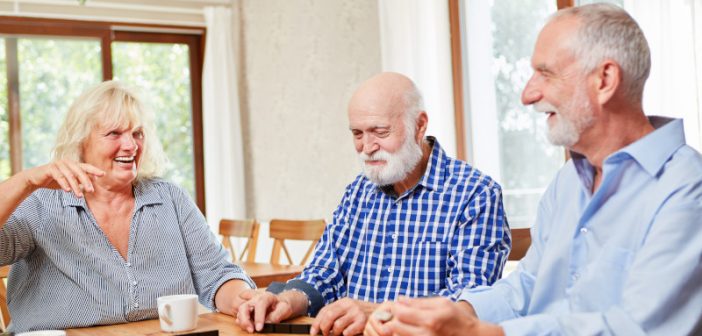If you have a loved one entering old age, you may think an assisted living facility is an inevitable part of his or her future. But maybe not.
In 2010, the U.S. Census reported that only 3.1 percent of seniors were living in nursing homes. That means the other 96.9 percent were finding alternatives. Even when a loved one is facing physical and cognitive decline, family members have options. One such option is to find an adult day center.
“Seniors dealing with memory care challenges need mental stimulation, physical activity, good nutrition and social interaction. A good adult day center provides them with these opportunities in a welcoming and familiar environment,” says Gary Staples, administrator at Aspen Senior Day Center in Provo. “We see every day how activities in these four areas help seniors with memory loss live life more fully while also giving family caregivers a much-needed break.”
When family members feel they need help providing the care and support their loved one needs, a day center can make a difference. For example, in 2010, 90 percent of day centers in the United States offered cognitive stimulation, and many also offered programs for family caregivers.
Here are six things a day center offers for people needing memory care:
Keep loved ones at home
An important benefit of adult day services is the ability to keep loved ones at home longer, putting off or avoiding long-term care facilities entirely. Seniors who need memory care may need full-time monitoring, and a day facility can provide the extra help a family needs in supervising their loved one at home. These facilities can improve abilities and delay further disability that may necessitate long-term care.
Socialization opportunities
Everybody likes to spend time engaging in fun activities with friends, and seniors who need memory care are no different. An adult day center gives seniors an opportunity for socialization by providing a place for them to be surrounded by good friends with similar abilities and interests. Together, they can enjoy music, art and other activities.
Improved abilities
Adult day centers can help improve important skills through crafts, games, memory-building activities, art and other stimulating pursuits. One study found that day center activities helped participants gain problem-solving abilities, improved concentration and helped them work with others.
Enhanced mood
Attending an adult day center can help alleviate feelings of depression for people in need of memory care. For example, people with dementia can make new friends and participate in fun activities. One study found that people who used a day center felt comfortable and validated: their mood improved with participation, and relationships at home benefited.
Better nutrition
Seniors often face unique nutritional needs that are hard to meet due to medications, chronic illnesses, disabilities or other issues. In answer, many day centers provide meals and can help bridge nutritional gaps. While it may be difficult to encourage a family member to eat well at home, they may be more likely to eat healthy meals in a group setting like a day center.
Reduced stress for family caregivers
Caring for a family member can be a rewarding yet stressful experience. Day centers can reduce stress for family caregivers by giving them some time off during the day while their loved one is in a safe environment.
Family caregivers have a number of options available to help them care for an elderly loved one with memory care challenges. Adult day centers can be a good solution, as they provide socialization and support and help seniors continue to live at home. It isn’t permanent — just a daily relief for both of you.
A version of this article was published by the Daily Herald. It has been republished here with permission.




